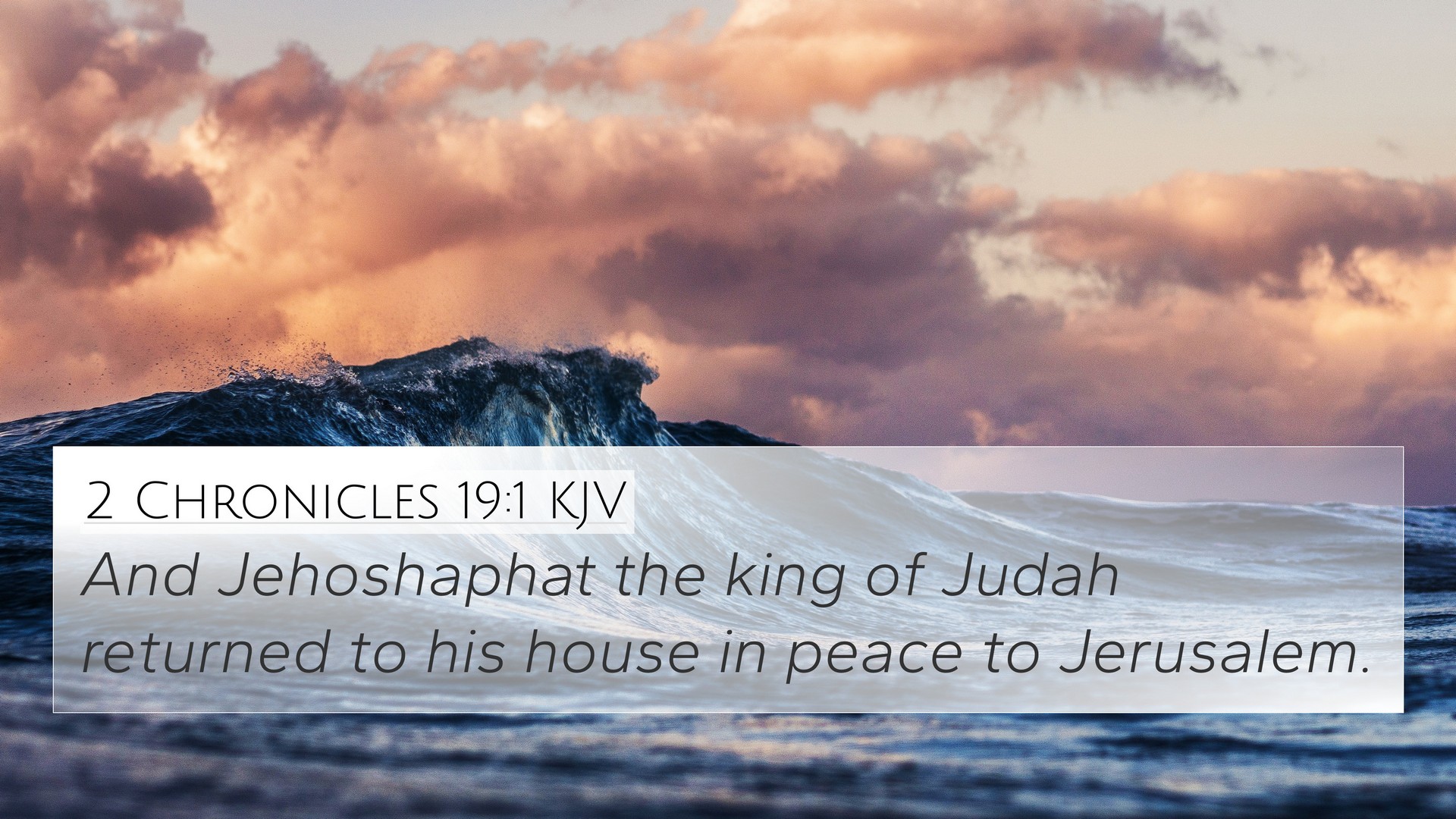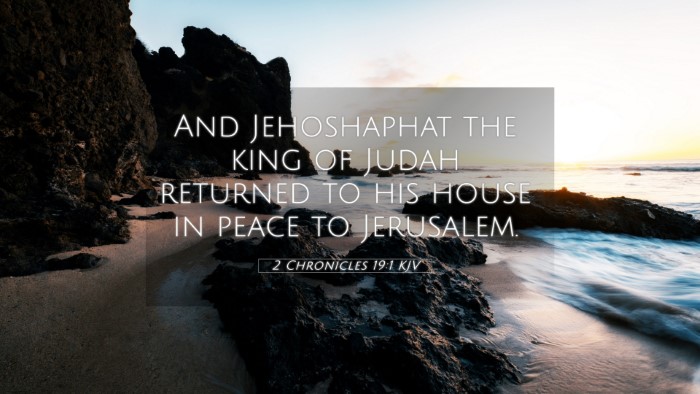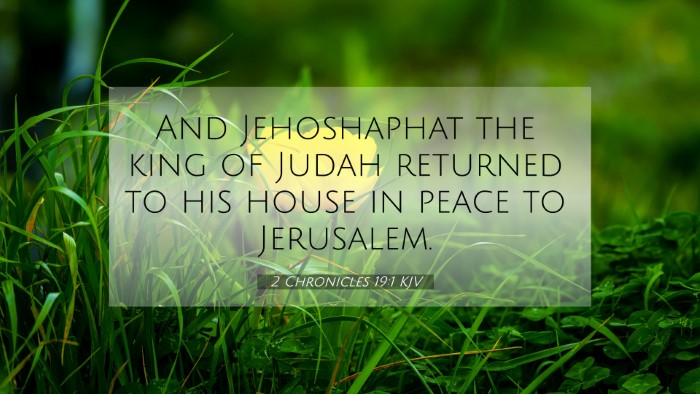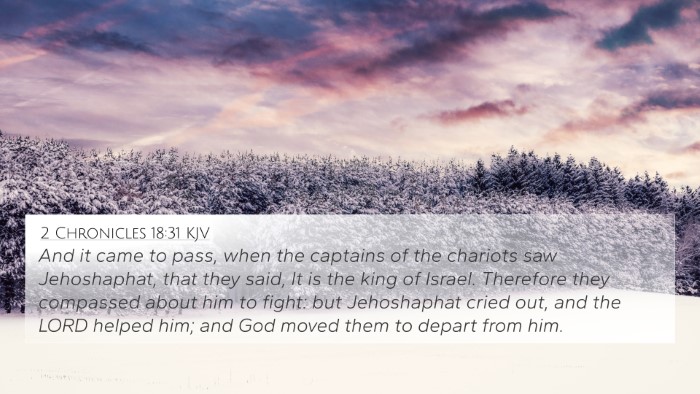Understanding 2 Chronicles 19:1
In this verse, we witness a powerful moment in the life of Jehoshaphat, the king of Judah. After returning from a battle with Israel, he is met with the successful aftermath and the importance of righteous leadership. This passage holds profound implications on biblical governance, morality, and the necessity of godly counsel.
Contextual Overview
2 Chronicles 19:1 states: "And Jehoshaphat the king of Judah returned to his house in peace to Jerusalem." This follows Jehoshaphat's engagement in a tumultuous alliance with King Ahab of Israel, highlighting themes of accountability, divine favor, and the consequences of earthly decisions.
- Public Domain Commentary Insights:
- Matthew Henry discusses how Jehoshaphat's return symbolizes not just a physical homecoming but also a spiritual reflection, emphasizing the importance of returning to a state of peace and righteousness after engaging in worldly matters.
- Albert Barnes notes that the mention of "returned in peace" signifies God’s provision for leaders who seek Him, suggesting that true peace is found in aligning one's actions with divine expectation.
- Adam Clarke elaborates that this verse marks a significant contrast between Jehoshaphat's deeds and those of other kings, indicating that living righteously leads to peace, while compromise leads to turmoil.
Thematic Connections
This verse invites a comparative analysis of scriptures that connect with the themes of divine protection, leadership, and redemption. We can explore the following cross-references:
- Psalm 85:10 - "Mercy and truth are met together; righteousness and peace have kissed each other." This verse aligns with the peace that Jehoshaphat experienced after making righteous choices.
- Isaiah 26:3 - "You will keep him in perfect peace, whose mind is stayed on You." This reinforces the idea that peace is a byproduct of divine focus and alignment with God's will.
- Proverbs 16:7 - "When a man's ways please the Lord, he makes even his enemies to be at peace with him." This reflects how Jehoshaphat's conduct garnered God’s favor and protection.
- James 3:18 - "And those who are peacemakers will plant seeds of peace and reap a harvest of righteousness." Jehoshaphat’s peace is in line with the principle of sowing peace leading to righteousness.
- Hebrews 12:14 - "Pursue peace with all people, and holiness, without which no one will see the Lord." This emphasizes the pursuit of peace and holiness in leadership.
- Jeremiah 29:7 - "And seek the peace of the city where I have caused you to be carried away captive, and pray to the Lord for it; for in its peace you will have peace." This relates to the importance of striving for peace in all circumstances.
- Philippians 4:7 - "And the peace of God, which surpasses all understanding, will guard your hearts and minds through Christ Jesus." This encapsulates the spiritual peace accessible through faith.
Connections between Bible Verses
The inter-Biblical dialogue established through these verses reveals a comprehensive theology surrounding the concepts of peace, righteousness, and divine governance. As we delve into these connections, we can see clear parallels that extend beyond historical context into spiritual application.
Tools for Bible Cross-Referencing
Utilizing resources such as a Bible Concordance or a comprehensive Bible Cross-reference Guide can aid in further understanding these themes and their relevance in various contexts of scripture. Methods for cross-referencing can enhance personal study, sermon preparation, and teaching, making the scriptures come alive through interconnected wisdom.
Summary
2 Chronicles 19:1 serves as a reminder of the need for leaders to return to the foundational truths of righteousness and peace. As we explore the connections through cross-referencing biblical texts, the underlying themes of God's sovereignty, the importance of righteous leadership, and the promise of peace emerge, enriching our understanding of God's word and His dealings with humanity.



